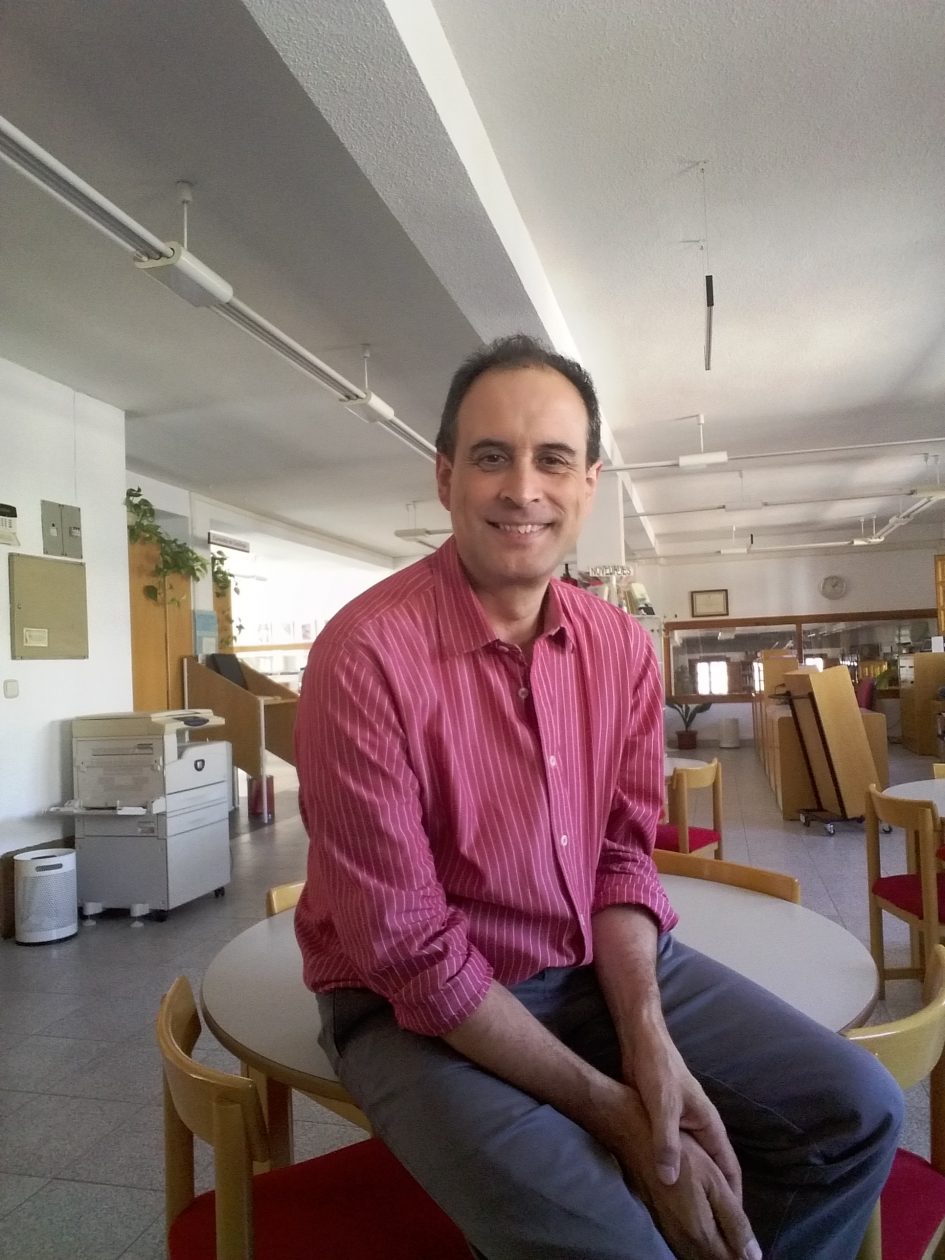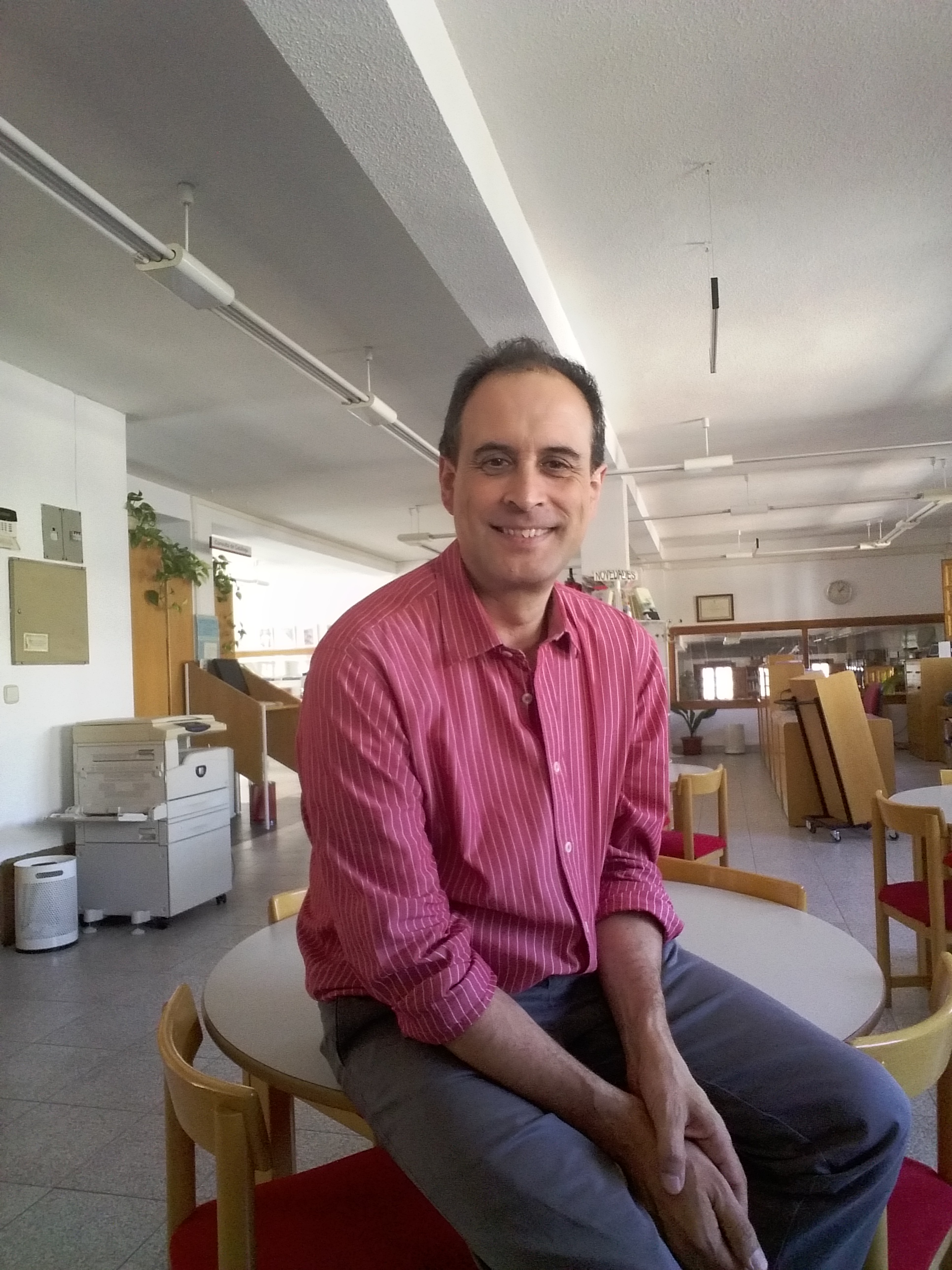As we announced last September 20th, Chinchón Municipal Library (Spain) has invited the librarians from their Sister Library Pyhäjoki Municipal Library (Finland) to a one-day Conference so they could exchange experiences. This Conference will take place next 6th October in the Regional Library of Madrid.
We have interviewed Pepe Zumel, librarian at Chinchón so he could tell us more about how they have organised this Conference and, incidentally, we’ve asked him about his experience with the Sister Libraries program.
How did you get to know the Project Sister Libraries?
It was a long time ago, but I can’t remember though which channel. I imagine it was on the web page of the Ministry of Culture, I think we requested our participation in 2011. I thought it was an interesting project that would open new ways of enriching our library’s activities with interchanges of experiences and new ideas.
One of the goals of our library is to help people know about other cultures, also for the librarians from a professional point of view: new ways of working. What is most interesting is to realize every library shares the same goals and ideals: we aim to culturally enrich the neighbours we serve. Sister Libraries opens a new gate for this enrichment in a variety of ways.
What made you choose Pyhäjoki library for the sistership?
Actually, they were the ones that picked us up. I remember receiving an email with an invitation to make a sistership. We had signed up in the program but hadn’t take the initiative to write to any library. They wrote saying our towns had some similarities: they are small towns (today, we have a population of 5.500, theirs is slightly lesser, around 4.000), both are in rural areas, and this is something that makes the difference in the way of working and relating to the users. Naturally, we accepted their proposal straight away. Finland is a country well renowned in the areas of education and culture and we can learn a lot from them.
What benefits do you see in having a Sistership? And for your users?
It is very enriching. Firstly, because some trainees from Pyhäjoki have visited us. One of the first activities we designed was a simultaneous photographic exhibition. When the pictures from Chinchón were exhibited at Pyhäjoki library, a student of Library Science who was a trainee at the library, Ulla Paakonen, showed interest in our library and the possibility of coming as a trainee to our library for a month. In March 2013, Ulla and Anita came as trainees and it was very interesting: we had Finnish lessons, conferences, school visits, exhibitions, a true immersion in the Finnish culture.
Ulla fell in love with our town and came back 2 times that year in order to complete her practices. In the summer of 2013, Ulla gave us lessons of English and Finnish traditional dances. Today, Ulla is a dear friend of all of us, and our emissary between Chinchón and Pyhäjoki.
How did the idea of organizing this Conference come about?
Las May Heikki, librarian at Pyhäjoki, expressed his intention of coming and visiting us. Apparently, he had received some funding for the trip, and all the staff at the library and the counsellor of Culture wanted to come to Chinchón.
In parallel, our library along with other small libraries from the Madrid Region, are part of a working group we have called “Rural Libraries Movement”. We meet quarterly for discussing professional matters, organize activities and help each other. Pyhäjoki library has participated in some of these activities, such as Fotolectura [Picture Reading], a photo contest on books and reading including texts inspired by the pictures.
We had been thinking about celebrating a one-day Conference for a long time, something more elaborated than our meetings where we’d invite somebody that’d share their experience. The trip of the librarians from Pyhäjoki and their counsellor of Culture was the perfect occasion. I think it can be enriching for all of us: we’ll get to know a different way of working and they’ll visit our libraries and see our work first-hand. If we manage to bring also our counsellors of Culture, it can be a very enriching experience.
Have you ever thought about having another sister library?
Yes, we have thought about it but we haven’t decided it yet. I believe it’s better to focus in this first sistership but we’ll see what the future brings. At this moment we are really busy working on the changes that come from the integration in the Union Catalog of the Madrid Region, when this work is done we can put our efforts in a new sistership.
Lastly, what would you say to other libraries to make them become a Sister Library? Would you recommend the experience?
I strongly recommend it. As I said before, it’s very enriching: we’ve made new friends, we have learnt a lot and, first and foremost, we’ve had a lot of fun, both the library staff and all the neighbours of Chinchón.
And we plan to do a lot of things more!


Leave a Reply